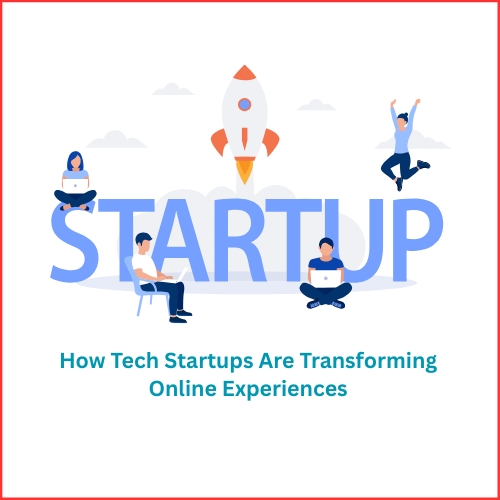The pharmaceutical industry has long been at the forefront of scientific innovation, and now, a new wave of technological advancement is set to accelerate the discovery and development of life-saving drugs. Artificial intelligence (AI) is playing a pivotal role in this transformation, reshaping the way drugs are discovered, tested, and brought to market. In this exclusive interview, Fayazoddin Mohamad, an expert in pharmacy management and regulatory compliance, shares his insights on how AI is revolutionising drug discovery and its potential to reshape the future of the pharmaceutical industry.

The Role of AI in Drug Discovery
Drug discovery has traditionally been a slow and costly process, often taking years—sometimes decades—to move from the lab to the pharmacy shelf. However, AI is drastically shortening timelines by enabling pharmaceutical companies to analyze vast amounts of data quickly and accurately. “AI has the potential to completely transform drug discovery by automating and accelerating many of the steps involved in identifying, testing, and developing new drugs,” says Fayazoddin Mohamad. “By using AI to sift through enormous datasets and make predictions about drug efficacy, researchers can focus on the most promising candidates, saving both time and money.”
One of the key challenges in drug discovery is identifying potential drug candidates that will be effective and safe for human use. This process typically involves screening millions of compounds to find those that show promise in treating specific diseases. AI-powered tools can analyse existing chemical libraries and predict which compounds are most likely to succeed in clinical trials, drastically reducing the time and resources spent on unsuccessful experiments.
Speeding Up Drug Design and Optimization
AI is also being used to design and optimise drug molecules, a task that once relied on human intuition and experience. “AI can help researchers identify patterns in biological data that would be impossible for a human to discern, leading to the design of more targeted and effective drugs,” says Fayazoddin. By using machine learning algorithms, researchers can predict how a drug will interact with the body, identify potential side effects, and suggest modifications to improve its effectiveness.
This ability to optimize drug design is especially important in the race to develop new treatments for complex diseases such as cancer, Alzheimer’s, and rare genetic disorders. “AI-driven drug design has already led to breakthroughs in creating drugs with higher precision and fewer side effects, and the potential for further advancements is enormous,” Fayazoddin adds.
Predicting Drug Responses and Side Effects
AI is not just improving the drug discovery process—it’s also enhancing the safety and efficacy of new drugs. Machine learning algorithms can analyze vast amounts of patient data to predict how different individuals will respond to a specific drug. “By analyzing genetic, demographic, and clinical data, AI can help pharmaceutical companies predict which patients are most likely to benefit from a particular treatment,” Fayazoddin explains.
This personalised approach to drug development not only increases the chances of success in clinical trials but also helps to ensure that drugs are safer for patients. AI can also predict potential adverse reactions by analysing historical data on similar compounds and identifying patterns of toxicity. As Fayazoddin points out, “AI helps to minimise the risks of harmful side effects by flagging potential issues before clinical trials begin, which ultimately leads to safer and more effective drugs.”
Enhancing Clinical Trials with AI
Clinical trials are another area where AI is having a transformative impact. Traditionally, clinical trials are time-consuming and expensive, with a significant failure rate. AI technologies are streamlining the recruitment process by identifying eligible patients more quickly and efficiently. “AI can analyse electronic health records (EHR) to find patients who meet the criteria for a clinical trial, which speeds up the recruitment process and ensures that trials have the right participants,” says Fayazoddin.
Furthermore, AI can optimise trial designs by predicting which trial parameters are most likely to yield meaningful results. Machine learning models can analyse real-world data to identify which variables have the greatest impact on patient outcomes, allowing pharmaceutical companies to design more effective trials. “AI helps to make clinical trials more efficient, reducing the time it takes to get new treatments to market,” Fayazoddin adds.
AI and Drug Repurposing
AI is also playing a role in drug repurposing, a process that involves finding new uses for existing drugs. This approach has become especially relevant in the context of the COVID-19 pandemic, where researchers used AI to identify potential treatments for the virus. “By analysing existing drug databases, AI can identify compounds that may work against diseases that they were not originally designed to treat,” says Fayazoddin.
AI-driven drug repurposing is a faster and less costly way to bring treatments to market, as it bypasses the early stages of drug development, which are often the most expensive. “This is an area where AI can really shine, offering pharmaceutical companies a faster path to bring effective treatments to patients,” Fayazoddin notes.
The Future of AI in Drug Discovery
Looking ahead, the potential of AI in drug discovery and development is immense. “AI is only scratching the surface of what it can do in the pharmaceutical industry,” Fayazoddin says. “As machine learning models become more advanced and the healthcare data landscape expands, AI will be able to predict drug responses even more accurately and design drugs that are tailored to individual patient needs.”
The integration of AI with other emerging technologies such as quantum computing and gene editing could further revolutionise drug development, creating opportunities for faster, more effective treatments. “We are on the verge of a new era in medicine, one where AI not only accelerates the discovery of new drugs but also helps us create more personalized and precise therapies,” concludes Fayazoddin.
Conclusion
Artificial intelligence is rapidly becoming an essential tool in the pharmaceutical industry, revolutionising the way drugs are discovered, developed, and brought to market. With its ability to speed up the discovery process, optimise drug design, predict patient responses, and enhance clinical trials, AI is not only making drug development faster and more efficient but also safer and more effective for patients.
As Fayazoddin Mohamad points out, the potential of AI in drug discovery is vast, and its impact on the future of medicine will only continue to grow. “AI is the future of drug development, and the pharmaceutical industry is just beginning to realize its full potential,” he says. “The next generation of life-saving drugs will be powered by AI, and we are at the forefront of that exciting transformation.”
Fayazoddin Mohamad is a highly respected expert in pharmacy management and regulatory compliance, with more than 12 years of experience in optimizing pharmacy operations and advancing industry standards. Throughout his career, Fayazoddin has worked with leading organizations such as Rite Drugs LLC and Anthem Inc., where he played a key role in driving innovations in regulatory compliance, operational efficiency, and patient safety. His expertise spans a wide range of areas, including HIPAA compliance, Medicare-Medicaid policies, and the integration of AI and emerging technologies in the pharmaceutical industry.
A certified SAFE 4.5 Product Owner, Agile Scrum Master, and DevOps Testing Lead, Fayazoddin has a strong foundation in Agile methodologies and cutting-edge technology solutions. His innovative approach to pharmacy management has enabled pharmacies to not only meet stringent regulatory requirements but also enhance their overall business operations and patient outcomes. As a thought leader, Fayazoddin is dedicated to mentoring professionals in the industry and driving the adoption of AI to streamline drug discovery, improve clinical trial processes, and create safer, more efficient healthcare environments. His visionary leadership continues to shape the future of pharmacy management and regulatory compliance, setting new benchmarks for excellence in the field















